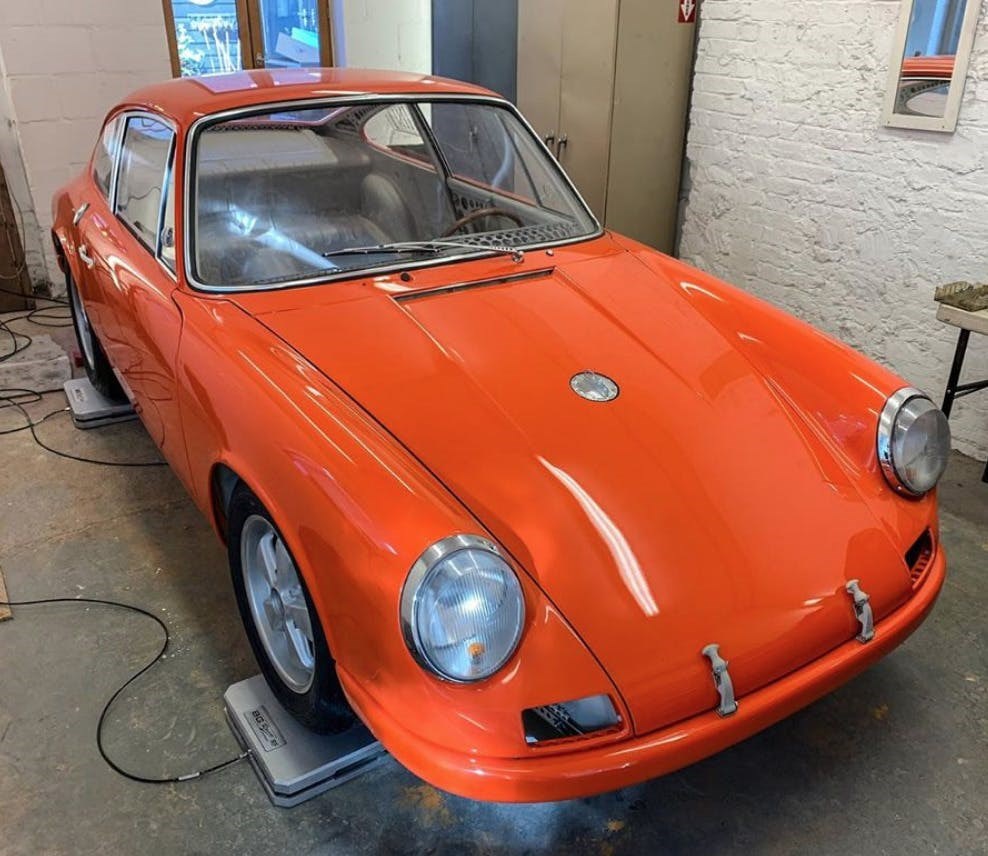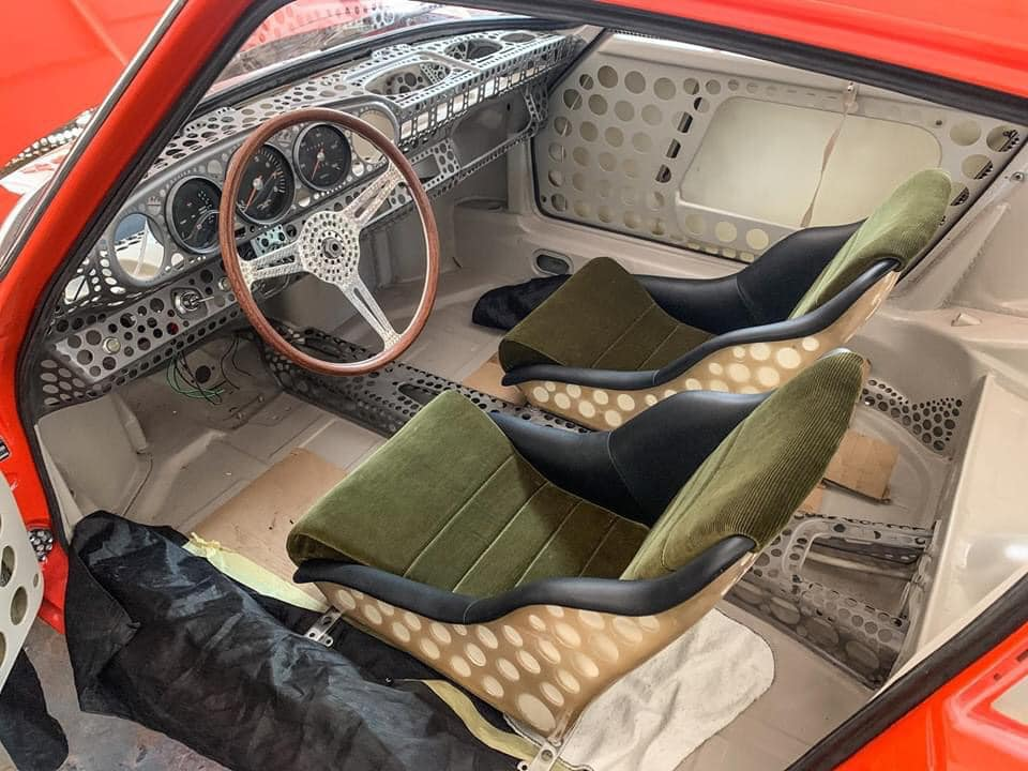If you're familiar with the term 'speed holes' you'd be aware of the fact that they're more commonly associated with cars full of rust than actual race cars. And no, drilling holes in the rear bumper of a Honda Civic actually reduces the aerodynamics, look it up.
While Porsche connoisseur Richard King is drilling a whole heap of holes in his classic Porsche 911, they're not for improving aero, but instead serve the purpose of reducing weight.

Click here to view all Porsche listings on Driven
Thankfully, this isn't King's first attempt at building an air-cooled Porsche, as he owns Karmann Konnection, which is a workshop specialising in all things old school Porsche.
As you'd expect King has restored all manner of Porsche in the past, but this new project is like nothing that the world has seen. He's set out to build the "Lightest 911 Ever."
First tipping the scales at a touch over 1000kg when it left the factory, King is planning on reducing the 911's weight by almost half, and finishing up with an extremely holy car that weighs just 595kg.
To achieve this, almost every single panel and part in the car has either been drilled to smithereens, or been replaced with a lighter material. Even the starter motor and transmission bell housing weren't safe from the holes.
Turning a classic car into a Swiss cheese model doesn't do great things for its structural integrity, but you'd be pleased to know that King is reinforcing some parts.
Despite this, it's somewhat comical to see just how detailed the speed holes are across the car. The rear-vision mirror and pedal box even received the Swiss cheese treatment.
If you are interested in seeing more pictures and following this build, Karman Kollection are posting updates on their Instagram account.
Let's just hope that their creation doesn't need to be crash-tested before it gets on the road.









